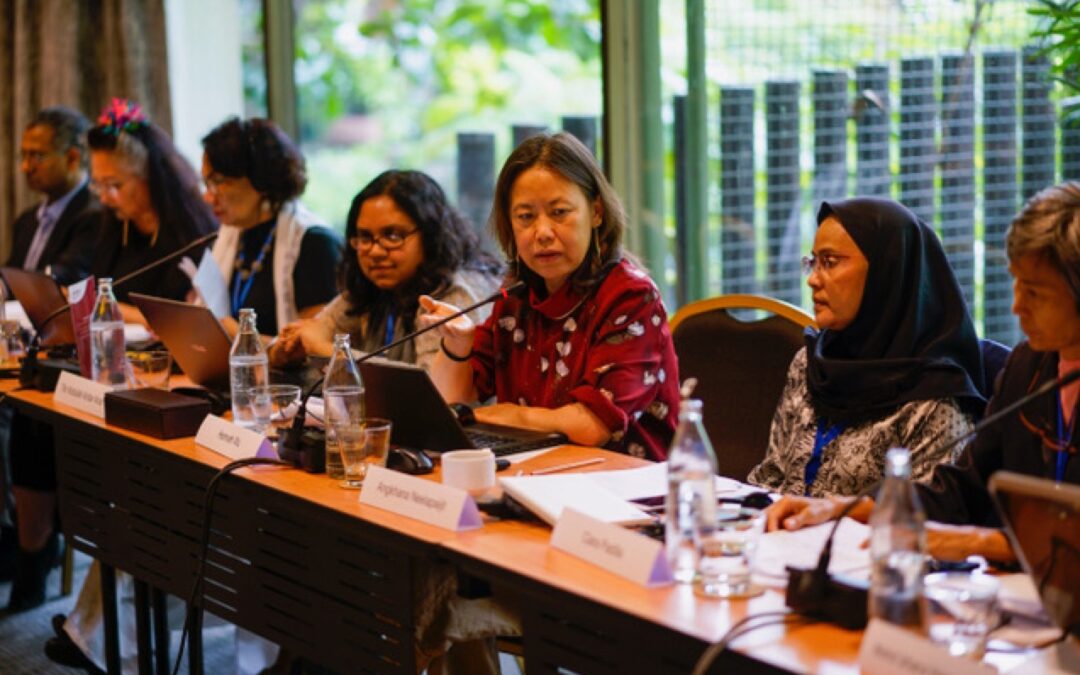
Nov 3, 2019 | News
Bangkok, Thailand – From 1 to 2 November 2019, ICJ in collaboration with the UN Office of the High Commissioner for Human Rights (OHCHR) and the Ralph Bunche Institute for International Studies, hosted a consultation on gender and the right to freedom of religion or belief with the UN Special Rapporteur on Freedom of Religion or Belief, Dr. Ahmed Shaheed.
The primary objective of the consultation was to provide a forum for human rights defenders, particularly women and human rights defenders belonging to sexual orientation, gender identity, gender expression and sex characteristics (SOGIESC) minorities to share their perspectives on laws, practices and anti-rights strategies based on religion or belief that discriminate against women and SOGI groups and individuals in Asia. The consultation was attended by at least fifty-two (52) human rights defenders from all over Asia.
Emerlynne Gil, ICJ’s Senior International Legal Adviser, in her opening address, emphasized that gender equality and the right to freedom of religion or belief should not be viewed as inimical to each other. She said, “Women and individuals belonging to sexual orientation and gender identity minorities should also be able to being to a faith or religion of their choice, or religion into which they are born and they should continue to belong to the religion or belief without being discriminated against by the faith or religious community.”
The consultation included discussions on the domestic contexts and legal frameworks in relation to freedom of religion and the rights of women and SOGIESC minorities, including in relation to the right to health. The participants considered challenges faced by women and SOGIESEC minorities when religious leaders act as justice actors were also discussed. The consultation, while highlighting the good practices in advancing the rights of women and SOGIESC minorities, also explored existing challenges and tensions in respect of achieving gender equality.
At the conclusion of the consultation, Dr. Shaheed noted the diversity of the participants in the room, who came from all over Asia. He emphasized that “in order to engage more effectively and strategically, it is imperative that we improve our literacy in relation to the human rights framework and of religion in order to better understand its intersectionality.”
Contact
Sushmitha Thayanandan, National Legal Advisor, Sri Lanka (ICJ) e: sushmitha.thayanandan(a)icj.org
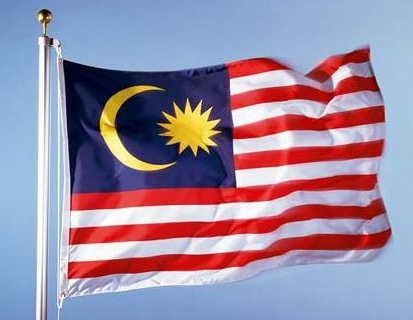
Mar 15, 2019 | News
The ICJ called on the Government of Malaysia to take immediate steps to protect the right of all persons in the country to freedom of expression and assembly, after seven organizers of the International Women’ Day (IWD) March were summoned for questioning by police authorities on 14 March 2019.
“It is very concerning that the Malaysian authorities continue to rely on repressive legislation to control and undermine freedom of expression and freedom of assembly in the country,” said Emerlynne Gil, ICJ’s Senior International Legal Adviser.
The Women’s March took place in Kuala Lumpur, on 9 March 2019. The demands of the participating groups included an ‘end of all violence based on gender and sexual orientation’, the ban of all child marriages, and the setting of RM1,800 as a minimum wage.
A statement by the Dang Wangi District Police Deputy Chief identified the organizers as individuals who had spoken at an ‘LGBT’ rally.
There were reportedly taken in for questioning on 18 March for potential violations of Section 4(1) of the Sedition Act and Section 9(5) of the Peaceful Assembly Act. They remain at risk of being charged for these offences.
The ICJ considers the Sedition Act 1948 and the Peaceful Assembly Act 2012 to be incompatible with international standards. The ICJ has previously called on the Government of Malaysia to abolish both laws, which have historically been used to silence voices of those challenging governmental policy.
The laws place restrictions on the exercise of freedom of expression that are overbroad, unnecessary and disproportionate, and inconsistent with rule of law and human rights principles. The Pakatan Harapan Government committed itself to abolishing the Sedition Act 1948 and the Peaceful Assembly Act 2012, but has not done so to date.
“The vague definition of ‘seditious tendencies’ in the Sedition Act has been used as a tool for silencing government critics and human rights defenders by previous administrations. It is disappointing that the Malaysian authorities have ended the moratorium on the use of the Sedition Act 1948, and continue to use it, instead of moving towards its abolition,” said Gil.
According to international standards, any limits on the right to peaceful assembly should not require prior authorization by the authorities. Notification requirements must not be unduly bureaucratic and be used only for the purpose of allowing the authorities to facilitate the exercise of the right to peaceful assembly, and to protect public safety.
In a 14 March statement, the organizers claimed to have been in regular communication with the police and to have been in compliance with the relevant notice provisions of the Peaceful Assembly Act.
The ICJ calls on the Malaysian authorities to end any investigations targeting the organizers of the Women’s March pursuant to the Peaceful Assembly and Sedition Act. It also calls on the Government to abolish the Peaceful Assembly Act and the Sedition Act.
Contact
Emerlynne Gil, ICJ Senior International Legal Adviser, t: +66 840923575, e: emerlynne.gil(a)icj.org
Malaysia-Womens March-News-web stories-2019-ENG (full story with additional information, in PDF)
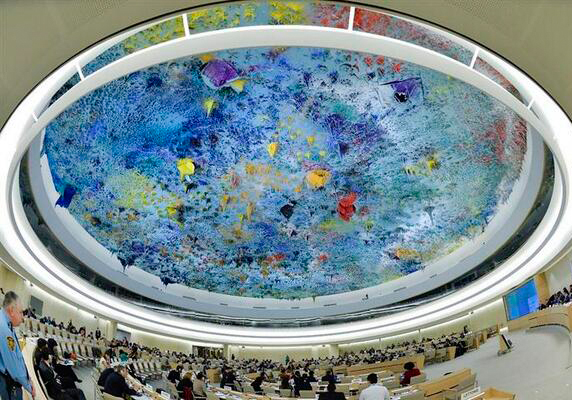
Dec 28, 2018 | Multimedia items, News, Video clips
During a week of training and practical experience of UN human rights mechanisms in Geneva, women lawyers spoke of the ways in which civil society actors can use these mechanisms to strengthen advocacy efforts.
As part of a project supported by the German Mission to the United Nations in Geneva the ICJ invited two groups of women lawyers to Geneva to attend training workshops that took place during the course of the June and September ordinary sessions of the UN Human Rights Council.
Participants spoke about their experiences with the interplay between UN mechanisms and domestic changes.
Lebanese lawyer Nina Abdallah noted the limitations of these mechanisms when States do not accept mechanisms that allow for individual complaint. As Lebanon has not yet become party to the Optional Protocol of the CEDAW Convention this means that individuals cannot access the CEDAW Committee to seek a remedy for violations and against that State’s failure to meet obligations under the Convention.
However, she explained that although this limits the accessibility of certain mechanisms, civil society can still play an important role in raising rights issues, calling for removal of reservations and acceptance of complaint procedures for specific Conventions through other mechanisms, such as the Universal Periodic Review reporting process.
Maria Sol Taule, a lawyer from the Philippines working for human rights NGO Karapatan, noted that it is difficult for UN mechanisms to address individual cases when there are so many issues to deal with. However, she said that these mechanisms do still serve as an “effective tool to use as a platform to drumbeat our issues that haven’t been heard by our respective governments.”
Civil society participation in the Human Rights Council, State reporting processes for Committees and the UPR provide an occasion to highlight the human rights difficulties faced within specific countries. Ms Taule said this kind of engagement also offers the opportunity to enhance international solidarity with other organizations from other countries that are dealing with similar rights issues.
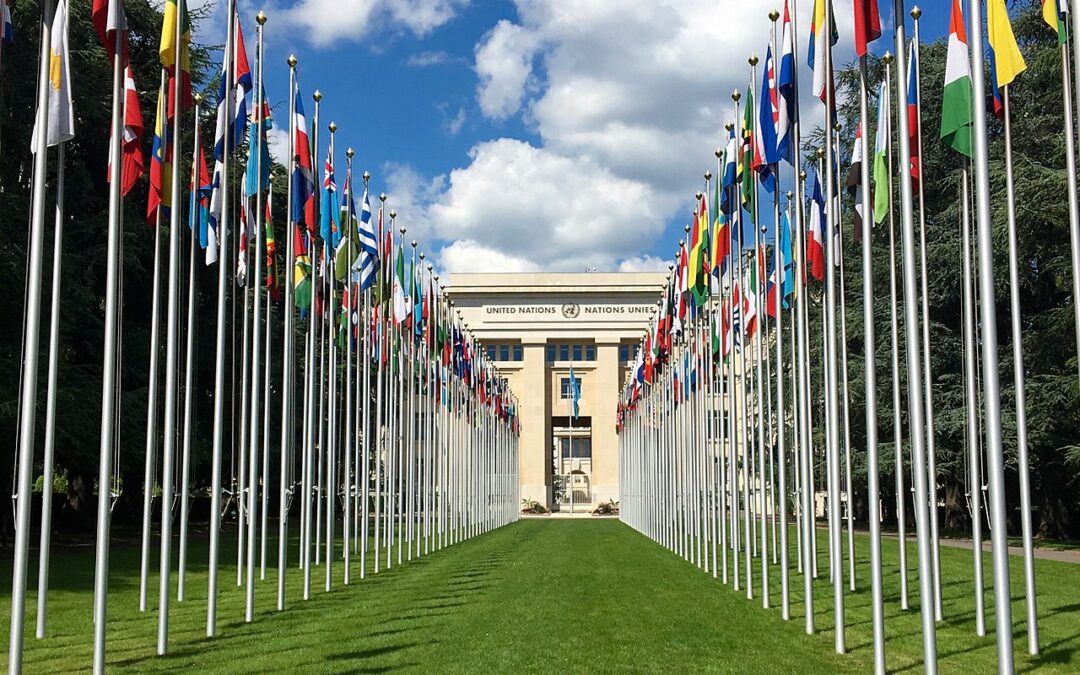
Dec 21, 2018 | Multimedia items, News, Video clips
The ICJ invited a number of women lawyers to Geneva to participate in a training workshop and gain practical experience of UN human rights mechanisms as part of a project supported by the German Mission to the United Nations in Geneva.
One group of women came to Geneva in June during the 38th session of the UN Human Rights Council and 70th session of the Committee on the Elimination of Discrimination against Women, and the other group came in September to coincide with the 39th session of the Human Rights Council.
During the week long training workshops participants learned about the international human rights mechanisms available to tackle issues of women’s access to justice and gained hands-on exposure to the operation of these mechanisms in practice.
Participants spoke about the impact that the CEDAW Convention has had in their domestic legislation.
Donia Allani a lawyer and lecturer at the Faculty of Legal, Political and Social Sciences of Tunis, discussed the impact of CEDAW in shaping legislation in Tunis to eliminate violence against women and facilitate access to justice but noted that women still faced stigmatization.
Donia Allani commented, however, that UN mechanisms could be improved to ensure that all activists and feminists can access these mechanisms without fear of reprisals.
Uzbek lawyer Sabina Saparova, also spoke of the impact that international law and standards can have domestically. She explained that Uzbekistan’s ratification of the CEDAW Convention provided an international commitment to incorporating equality between men and women into its legal structure. Recently the president of Uzbekistan initiated the first steps toward the adoption of a law on the prevention of domestic violence.
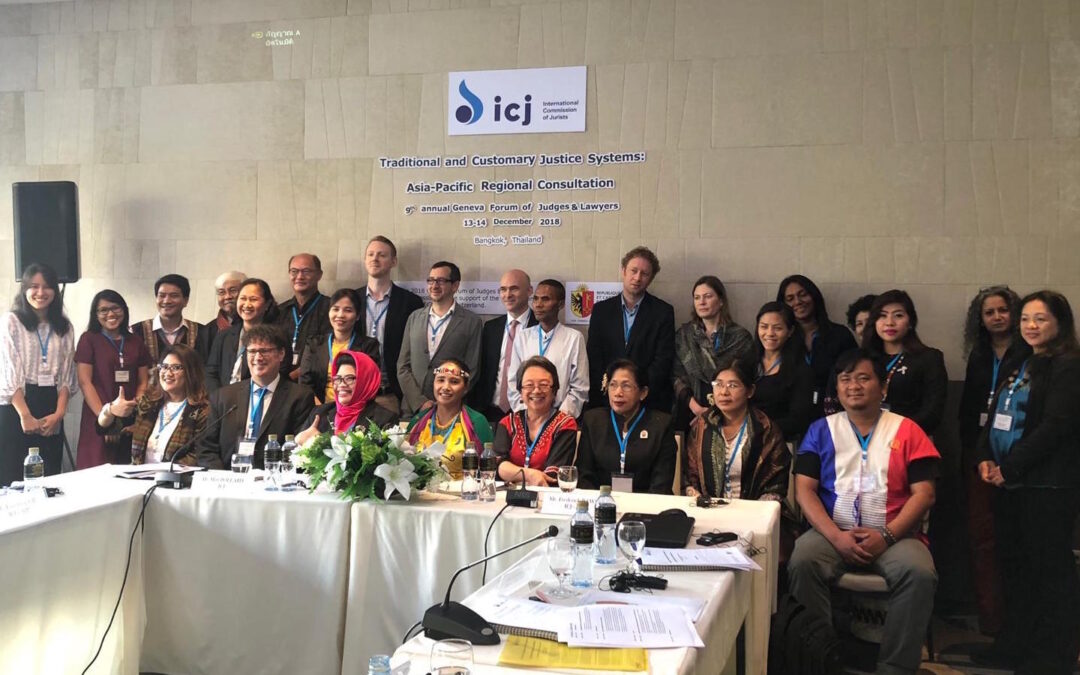
Dec 15, 2018 | Events, News
The ICJ convened the 9th annual “Geneva Forum” of Judges and Lawyers in Bangkok, Thailand, 13-14 December 2018, on the topic of indigenous and other traditional or customary justice systems in Asia.
Indigenous and other traditional or customary justice systems play a significant role in many societies around the world, in terms of access to justice for rural communities, indigenous peoples, minorities, and other marginalized populations. At the same time, such systems raise a series of questions in terms of their relationship to international fair trial and rule of law standards, and impacts on human rights including particularly those of women and children.
9th annual Geneva Forum of Judges & Lawyers, 13-14 December 2018, Bangkok, Thailand
Following discussions on these topics at the 2017 ICJ Geneva Forum (an annual global meeting of senior judges, lawyers, prosecutors and other legal and United Nations experts, convened by the ICJ with the support of the Canton and Republic of Geneva (Switzerland) and other partners), the ICJ decided that in order to better engage with customary justice systems, the Geneva Forum would be “on the road” in 2018 and 2019, convening for a regional consultation in the Asia-Pacific in 2018, and in Africa in 2019.
Additional consultations will take place in the Americas. The Forum will return to Geneva for an enlarged session in 2020 to adopt final conclusions and global guidance.
The ninth annual Geneva Forum in Bangkok brought together judges, lawyers, and others engaged with traditional justice systems in the Asia-Pacific region, and practitioners from ordinary justice systems in the region, together with UN Special Rapporteur on the rights of indigenous peoples Ms. Victoria Tauli Corpuz, as well as ICJ and UN representatives from Geneva, to discuss and develop practical recommendations, in a private small-group setting.
Participants came from a number of countries across the region, including: Cambodia, Indonesia, Malaysia, Myanmar, Pakistan, Philippines, Thailand and Timor Leste.
The potential and the risks for equal and effective access to justice and human rights
Many participants re-affirmed that traditional and customary justice systems can make an important contribution to improving access to justice for indigenous, and other rural or otherwise marginalized populations, as a result of such factors as geographic proximity, lower cost, lesser cultural or linguistic barriers, and greater trust by local communities, relative to the official justice system.
Indeed, for these and other reasons, for some marginalized and disadvantaged rural populations, traditional and customary courts may in practical terms be the only form of access they have to any kind of justice.
Furthermore, article 34 of the UN Declaration on the Rights of Indigenous Peoples affirms the right of indigenous peoples “have the right to promote, develop and maintain their institutional structures and their distinctive customs, spirituality, traditions, procedures, practices and, in the cases where they exist, juridical systems or customs, in accordance with international human rights standards”.
Furthermore, official recognition of traditional or customary courts in a country can more generally be a positive reflection of the cultural and other human rights of other ethnic, religious or linguistic minorities.
At the same time, the Forum discussions confirmed that, as with formal justice systems, certain characteristics and processes of some traditional and customary justice systems can conflict with international standards on fair trial and the administration of justice, and human rights, particularly of women and children.
Participants in the 2018 Forum discussed a variety of ways in which the relevant communities, their leaders, and decision-makers in indigenous or other traditional systems, together with government authorities, international actors, development agencies, and civil society, can cooperate and coordinate with a view to seeing both formal and traditional systems operate more consistently with international standards on human rights and the rule of law.
There was a range of views on which forms of engagement or intervention were most appropriate or effective. It was also emphasized that work should continue to build the accessibility and capacity of official justice systems to ensure that individuals seeking justice have a real choice.
The above conclusions were subject to the acknowledgement that traditional and customary justice systems take many different forms across the region, and that they exist in many different contexts.
A full report of the Forum discussions will be published by the ICJ in the first part of 2019.
Development of Guidance by the International Commission of Jurists
The ICJ’s global experience and expertise, together with research and global consultations with judges, lawyers and other relevant experts, including the 2017 Geneva Forum, the 2018 session in Bangkok, and subsequent regional consultations in Africa and the Americas, will provide a foundation for the publication by ICJ in 2020 of legal, policy and practical guidance on the role of traditional and customary justice systems in relation to access to justice, human rights and the rule of law.
The ICJ guidance will focus on the mechanisms and procedures of traditional and customary justice systems, as opposed to tackling all aspects of the substantive law.
The guidance will seek to assist all actors involved in implementation and assessment of relevant targets of Sustainable Development Goal 16 on access to justice for all and effective, accountable and inclusive institutions, as well as Goal 5 on gender equality, including: decision-makers and other participants in traditional and customary justice systems; judges, lawyers and prosecutors operating in official justice systems; other government officials; development agencies; United Nations and other inter-governmental organizations; and civil society.
The guidance will be published and disseminated through activities with ICJ’s regional programmes, and its national sections and affiliates, through a series of regional launch events and workshops, as well as at the global level at the United Nations and in other settings.
The guidance will provide the basis for ICJ strategic advocacy at the national level in the years following the conclusion of this initial phase of this work.
Background Materials
Available for download in PDF format:
A Compilation of selected international sources on traditional and customary courts, is available here.
The Final report of the 2018 Geneva Forum, on traditional and customary justice systems, is available here: Universal-Trad-Custom-Justice-GF-2018-Publications-Thematic-reports-2019-ENG
The Final report of the previous, 2017 Geneva Forum, on traditional and customary justice systems, is available here: Universal-Trad Custom Justice Gva Forum-Publications-Thematic reports-2018-ENG
For more information, please contact matt.pollard(a)icj.org.









